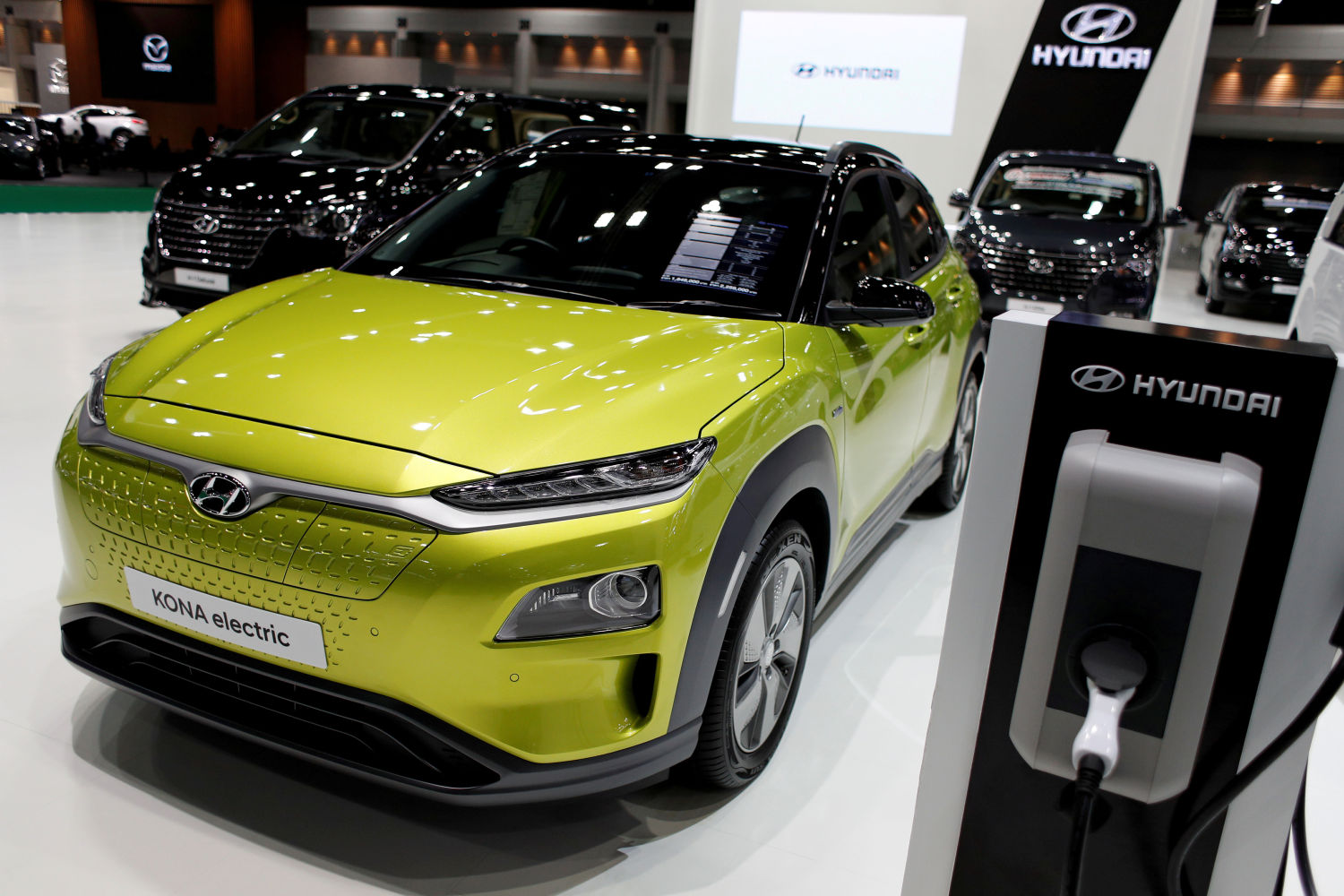(ATF) Hyundai Motor Group said it would build electric vehicles (EVs) in the US as part of a $7.4 billion investment that also covers hydrogen refuelling stations – and flying taxis.
The investments will be made through 2025, Hyundai said in a statement on Thursday, adding that the EVs would be made in Montgomery, Alabama.
“We’re going to review options, including the expansion of our production facility, after we’ve taken a closer look at market conditions and the US government’s new EV policy,” said Michele Tinson, a spokeswoman for Hyundai in the US.
The primary focus is “ensuring a stable EV supply chain to meet US demand”, she added.
Hyundai and affiliated brand Kia have been notching sales records in the US with SUVs like the Kia Telluride and Hyundai Santa Fe.
Hyundai’s assembly plant in Alabama is at full capacity, making 400,000 vehicles a year, Jose Munoz, chief operating officer said earlier this month.
Hyundai already sells the battery-powered Kona and Ioniq in America.
The Korean conglomerate would also invest in a refuelling demonstration to promote hydrogen fuel-cell trucks, and set up a new subsidiary in Washington dedicated to urban air mobility, such as flying taxis, according to the statement.
EARLIER TARGET
Separately, German automaker Daimler said it would phase out cars with internal combustion engines before its internal target of 2039 Ola Källenius, chief executive, told a forum.
“He told the Financial Times Future of the Car Summit that Daimler’s transformation into a zero-emission company, he added, was “going to be faster”.
The Stuttgart-based group set a goal in 2019 of offering a carbon-neutral new car range within 20 years, but competitors including General Motors and Ford have since unveiled more ambitious targets.
Källenius said “market dynamics”, as well as regulatory pressure and lower battery costs, would make the economic case for a more rapid switch to electric vehicles compelling.
Since taking the reins at Daimler two years ago, the former F1 executive has overseen the rollout of the first Mercedes-Benz luxury EV, the EQS, designed from scratch.
Four more electric models are set to follow in the next 18 months.
With reporting by Reuters
























